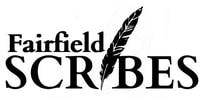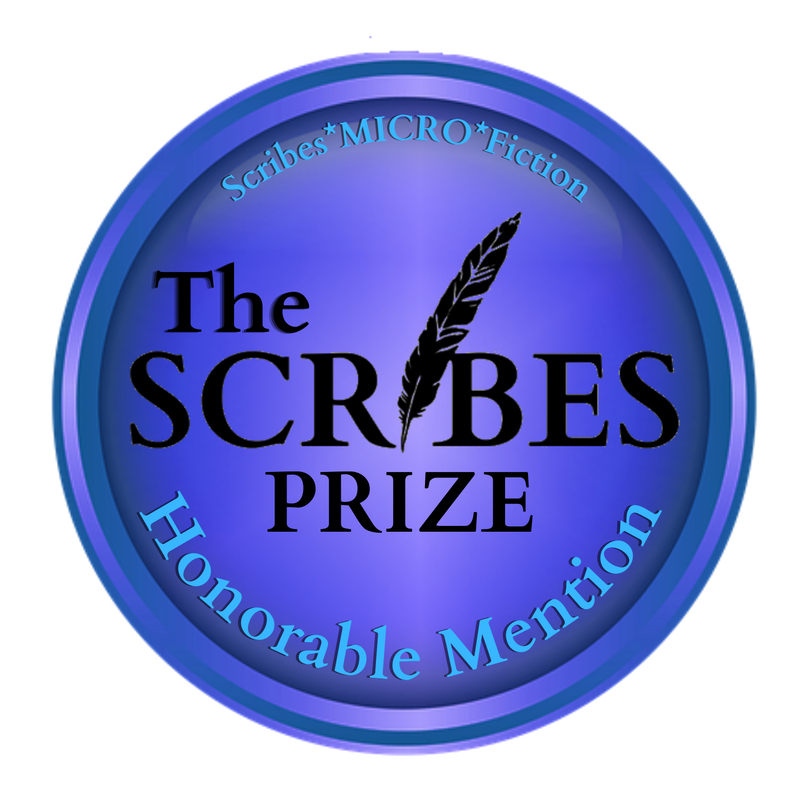|
Ashley McCurry (she/her) writes flash- and micro-fiction between her day shifts as a speech-language pathologist. On weekends, she serves as a staff writer/editor for Cream Scene Carnival and reader for Okay Donkey literary magazine. She currently lives on a mountain with her best-friend-turned-spouse and four rescue dogs, in a home full of 80s music and vintage arcades.
|
You can find her work in FlashFlood Journal, Heimat Review, Five Minutes, Sky Island Journal, and others. Her work was recently longlisted in the 2023 Bath Flash Fiction and Brilliant Flash Fiction writing contests.
Interview with Ashley McCurry
about her story "Warehouse Dream"
Honorable Mention for The Scribes Prize
What inspired this piece?
I have had a recurring dream about being chased through my grandparents’ Victorian home since I was a young child, which manifests during times of stress, meaningful transitions, or pivotal moments in my life. This led to the idea of a similar recurring nightmare that reflects ongoing trauma that never truly resolves but rather changes form. In a way, writing short prose has allowed me to process my own history of trauma, and this piece was no exception. This story urged me to consider questions regarding when/where trauma originates, why patterns emerge generationally, and how certain childhood narratives shaped my own trajectory of lifelong decision-making, for better or worse.
What draws you to the micro-fiction format?
I have a quotation on my wall from Raymond Carver that says, “Get in, get out. Don’t linger. Go on.” I taped this note to my wall on the first day I started writing, and it has inspired my journey ever since. Micro-fiction pieces are like gourmet truffles purchased in a chocolaterie in Paris; they are delicacies due to the care and skill required when creating each morsel. Writing a micro-fiction story entails similar effort and adroit craftsmanship. It requires the ability to condense a narrative to its very core –its heart –and each carefully-selected word must have import. I don’t expect to become a best-selling author as a micro-fiction writer, but it is a meaningful, transformative art form that becomes quite compelling once you discover it.
What's next on the horizon for you?
Due to overlapping themes in my recent work, I am currently compiling twenty to thirty of these stories into a chapbook, or perhaps a novella-in-flash.
I have had a recurring dream about being chased through my grandparents’ Victorian home since I was a young child, which manifests during times of stress, meaningful transitions, or pivotal moments in my life. This led to the idea of a similar recurring nightmare that reflects ongoing trauma that never truly resolves but rather changes form. In a way, writing short prose has allowed me to process my own history of trauma, and this piece was no exception. This story urged me to consider questions regarding when/where trauma originates, why patterns emerge generationally, and how certain childhood narratives shaped my own trajectory of lifelong decision-making, for better or worse.
What draws you to the micro-fiction format?
I have a quotation on my wall from Raymond Carver that says, “Get in, get out. Don’t linger. Go on.” I taped this note to my wall on the first day I started writing, and it has inspired my journey ever since. Micro-fiction pieces are like gourmet truffles purchased in a chocolaterie in Paris; they are delicacies due to the care and skill required when creating each morsel. Writing a micro-fiction story entails similar effort and adroit craftsmanship. It requires the ability to condense a narrative to its very core –its heart –and each carefully-selected word must have import. I don’t expect to become a best-selling author as a micro-fiction writer, but it is a meaningful, transformative art form that becomes quite compelling once you discover it.
What's next on the horizon for you?
Due to overlapping themes in my recent work, I am currently compiling twenty to thirty of these stories into a chapbook, or perhaps a novella-in-flash.




